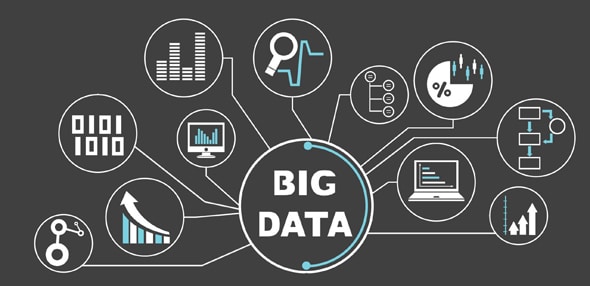Data is everywhere — from smartphones to tablets and from laptops to good old computers and to analyse, store and manage such large amounts of data that we are consuming and generating every day. The experts are thus looking for the professionals who have the ability to process big scale data for their organisations on a consistent basis. The large-scale data processing around the globe has compelled the companies to hire more skilled data analysts and data engineers who can help them combat this data so that it can make more sense to them by giving them great insights about the latest market practices and help them in deciding the course of their strategies. It also helps them make key decisions in the business department.
With a big boom in the Big Data industry; there is high demand for professionals who can manage large-scale data for companies and organisations with expert data analytical skills. And more opportunities have led to stiff competition in the marketplace for key positions in various reputed firms and companies for data management professionals. And this stiff competition has ensured that you need to be on your toes all the time to make it big as a data engineer or a data analyst.
You might possess the essential skill sets to get the job that you’re seeking, or you might have the highest level Big Data training. But all that doesn’t qualify and won’t even matter when you’re not able to show concrete proof of your skills in that big interview that you need to clear. Big Data interview questions by the recruiters are sometimes so tricky that they can easily make even the most skilled professionals tongue-tied and at a loss for words and that is something that calls for an intervention.
Below are five of the researched Big Data interview questions and answers that you might want to look at before going for that career-defining interview.
What is Hadoop and what are its constituents?
When Big Data raised its head as a problem, Hadoop readily served as a much-needed solution, right away. It is an open source platform which allows storing and processing large amounts of data at low costs with the help of its various tools. The framework helps data analysts to manage, store and analyse data in a much more refined way which in turn helps their companies to make key decisions about their products and services by providing regular insights on the pulse of the market and customers.
There are basically two constituents of Hadoop:
HDFS (Hadoop Distributed File System): it serves as a storage unit for Big Data.
YARN (Yet Another Resource Negotiator): it serves as a processing unit for Big Data.
MapReduce: a framework that enables measurability among numerous parallel clusters by scheduling assignments and tasks.
What is Big Data, and explain its four Vs?
Big Data refers to large clusters of data sets that became impossible to manage over time using old and traditional methods of processing. And that led to the development of platforms like Hadoop and Spark which helped companies in analysing, storing, sharing, searching, managing and collecting Big Data in a more organised way to help them stay ahead of their competitors by knowing more about the likes and dislikes of their customers and the latest market practices.
The four Vs of Big Data:
Volume
Velocity
Variety
Veracity
What is a block in Hadoop Distributed File System (HDFS)?
Blocks are nothing but the units in which data files are stored in the form of chunks of continuous clusters in an HDFS environment. The default block size in Hadoop 2 HDFS environment is 128 MB.
What is a speculative execution in Hadoop?
In Hadoop, you can assign and distribute tasks on multiple nodes at the same time, and this sometimes limits the whole program by slowing its overall speed. In such cases, Hadoop allows duplication of the slower task to run it on a different disk or node and whichever task is finished first is accepted and the other one is killed. This procedure is known as Speculative execution.
What are the three modes to run Hadoop?
Standalone Mode
Pseudo Distributed Mode
Fully Distributed Mode












































































